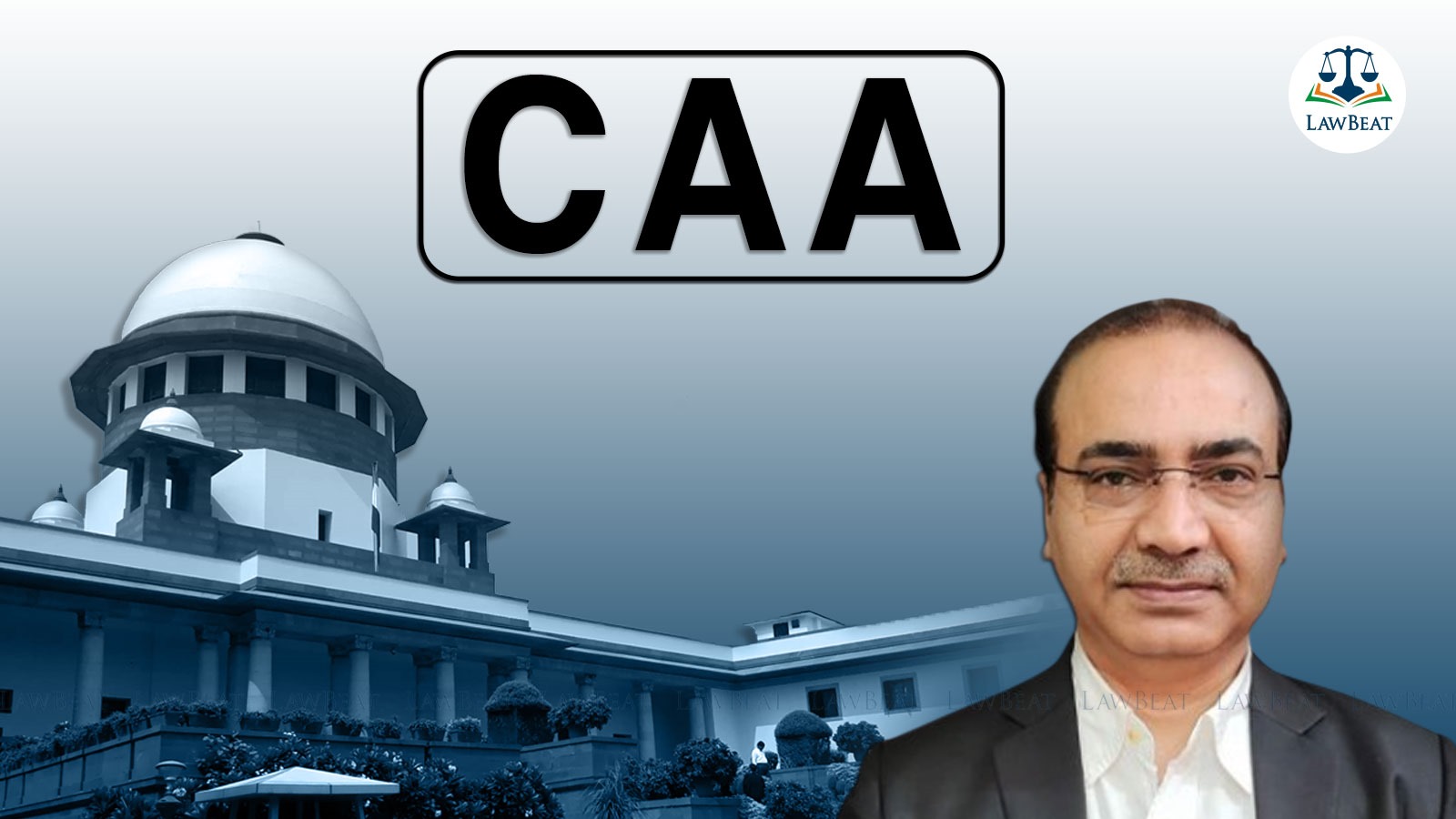IUML's Petition Against CAA Is 'Politically Motivated': Adv Ashwini Upadhyay's Plea Before SC

Adv Upadhyay stated that petitions challenging the constitutional validity of the Citizenship Amendment Act 2019 are politically motivated and none of the fundamental rights of any minorities are being violated by the Act
Advocate Ashwini Kumar Upadhyay has filed a plea before the Supreme Court seeking the dismissal of a petition filed by the Indian Union Muslim League (IUML), which contested the Citizenship (Amendment) Act, 2019 (CAA).
Upadhyay, a member of the Bharatiya Janata Party (BJP), in his plea, stated that the legal challenges mounted against the CAA's constitutionality were politically motivated. He firmly asserted that the CAA did not encroach upon any fundamental rights as enshrined in the Constitution.
The plea meticulously outlined that the protests witnessed at institutions such as Aligarh Muslim University (AMU) and Jamia Millia Islamia University were not rooted in genuine constitutional apprehensions. “They feel entitled to overturn a law passed by the Parliament by violence on the streets. Thus, placing raw street power above the legitimacy of the Government, the Constitution and the electoral Process”, the plea emphasized.
The plea highlighted incidents of violence, including the burning of trains and buses, pelting of stones, and attacks on law enforcement personnel. These incidents, according to the plea, aimed to propagate a misleading narrative of widespread unrest.
Within his plea, Upadhyay elaborated on the overarching objective of the CAA, to extend refuge to persecuted minorities hailing from neighboring countries such as Pakistan, Afghanistan, and Bangladesh. The plea, referring to the Nehru-Liaquat Pact, underscored the failure of Pakistan to uphold its commitment to safeguarding the interests of minorities. “The persecuted religious minorities of Pakistan Afghanistan and Bangladesh have the first right to asylum in India”, the plea added.
Concerning the CAA, Upadhyay unequivocally clarified that it bore no impact on the citizenship status of Indian Muslims and was explicitly designed to grant, rather than rescind, citizenship. He underscored the harrowing experiences endured by Hindu and Sikh minorities in the aforementioned countries, necessitating protection and refuge.
The plea recognized the extensive criticism leveled against the Act by opposition leaders and scrutinized their actions stating, “Issues of national interest, cultural identity, civilizational causes, humanitarian and governance concerns should not be decided taking into account vote-bank”.
The plea, favoring CAA, referred to the infiltration that occurred in Assam, noting, “The Muslim Infiltration continued to change the demography of Assam so much so that in many parts of the state native Assamese were turned into minority”. The plea further underscored, “Common Assamese citizens… were determined to thwart it (infiltration) by endorsing the Act and welcoming Bengali Hindu refugees”.
Addressing concerns regarding the Amendment's constitutional validity, Upadhyay provided clarifications to dispel any misconceptions and affirm its legality, grounded in the authority vested in the Parliament by the constitution. Concluding his plea, Advocate Upadhyay prayed for the dismissal of these petitions before the Supreme Court citing the broader public interest as paramount.
Case Title: Indian Union Of Muslim League v Union of India [WP(c) 1470/2019]
